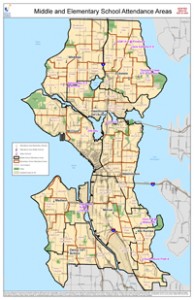How to Help Home-Bound Teenagers Cope
Stay-at-home restrictions are challenging for everyone, especially teenagers.
In the wake of the coronavirus pandemic, teens – who would normally just be starting to enjoy life as independent beings in the world – are suddenly back under the purview of mom and dad. To make matters worse, many teens have had something extremely important to them suddenly ripped away: a lead in the school play, a varsity spot on the team, prom, graduation, a part-time job, etc. On top of that, their all-important social life is now off limits as well.
Whats a parent to do? While nothing will come close to replacing the life your teenager had been living, here are a few strategies to help your teen cope:
Make sure theyre informed. Teens are masters of disguising their true feelings, so dont misread their cool demeanor as apathy. They might be getting the bulk of their information through social media, which is not always accurate and may be causing undue alarm. Be sure to calmly keep them apprised of the developments surrounding the coronavirus, explaining why the restrictions are important. Dont withhold information out of fear of worrying them. Listen to a trusted news source together so that the information is coming directly from the experts, not their overreacting parents.
Give them a social outlet. Its critical that your teenager is still able to connect with friends during this time. Encourage social distancing activities they can do with a friend, such as hiking, running or biking. Let them take the car to a nearby scenic spot and hang out side-by-side with a friend in another car. Give them privacy to use the family computer to host a Zoom meeting or Google hangout with multiple friends. At all costs, make sure your wifi is up to snuff so that your teens can easily text, use social media and Facetime to stay connected.
Help them earn money. Your teenager may be depressed about losing a job, but you can easily come up with some jobs around the house for your teen to take on to earn some money. Have them help you with some small tasks related to your job while youre working from home, or a project that will get them outside, such as spring yard clean-up. While the financial incentive is a big plus, the real benefit is getting their minds focused on something other than the situation at hand.
Keep student athletes in shape. While staying active is essential for all teens in this situation, its particularly important for your student athlete who is used to a rigorous work-out schedule, and could respond negatively to suddenly being sedentary. Check in with coaches to see if theyve put a work-out schedule in place or are perhaps hosting online group workouts. Remind your athlete that keeping their fitness level up is essential so that they can return to sports without missing a beat.
Embrace family time. While the hectic pace of life before the pandemic might have made you and your teenager ships that pass in the night, youve now got lots of time together, so make the most of it. Eat meals together, binge watch a series together, play cards, get the old photo albums out, etc. The idea is to make sure your teenager doesnt stay holed up all day in his or her room. So make some interactive time mandatory.
Photo by Steinar Engeland on Unsplash






